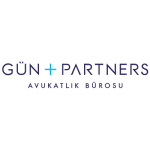Patent and utility model rights, which are vital to incentivising R&D and innovation, provide their holders with a significant advantage over their competitors and grant an absolute right for a certain period. However, as in every system, there are players in the patent and utility model ecosystem who use these rights contrary to the purpose and spirit of the system.
These players, who obtain patent/utility model registrations by taking advantage of the loopholes in the system without contributing to the technique and who try to make a profit and put pressure on their competitors by asserting these registrations against their competitors, are known colloquially as patent trolls.
In cases where companies find it challenging to carry out their commercial activities and protect their commercial reputation among their customers in the face of patent trolls, remedies are available under procedural law, the most important of which is injunctive relief requests.
Although the types of preliminary injunction requests available depend on the nature of the dispute, it is fair to say that the one that is most commonly resorted to in practice is a preliminary injunction request to prevent the enforcement of rights arising from the utility model or patent registrations or applications.
Learning the lessons of case law
Undoubtedly, the scope and time of preliminary injunction requests and before which court, and when, they should be brought should be evaluated according to the characteristics of each case. Yet, certain decisions rendered in precedent-setting cases have obviated the strategies of patent and utility model trolls.
For instance, in a recently finalised court decision in Turkey, a company that registered the basic principles of a technique in the textile printing field by taking advantage of the lack of extensive novelty examination in the utility model registration system developed a strategy against the threat of prevention of its commercial activities by its competitors.
Concerned that its commercial activities in Turkey would be disrupted and its reputation discredited, the company brought an invalidation action against the relevant utility model. The action requested that the other party be prevented from enforcing its rights arising from the utility model against the company. Upon receiving expert examination of the merits, the court of first instance accepted the request.
In a similar court decision in Turkey, upon the utility model registration in bad faith of a technique commonly known in the textile industry, competitor companies were inundated with licence requests from the bad-faith utility model holder. This created concern for the companies involved, similar to the aforementioned case.
An adverse declaratory action was filed against the utility model holder on behalf of a competitor company, and a similar injunctive relief was granted in this action. In this case, the court of first instance found sufficient explanations in the petition that there was no violation and accepted the request for preliminary injunction without even conducting an expert examination on the merits, thus providing relief to the wronged company. It should also be pointed out that the preliminary injunction decision has been finalised upon appeal examination.
The importance of adopting the correct strategy
As can be seen, requests for a preliminary injunction are useful in different strategies in different ways, whether for the holder of the intellectual property right or the companies under threat due to the intellectual property right.
In particular, taking correct and timely action against the absolute rights gained by patent trolls through the loopholes in patent and utility model registration processes and establishing the correct strategy is of great importance for companies in the long run.














